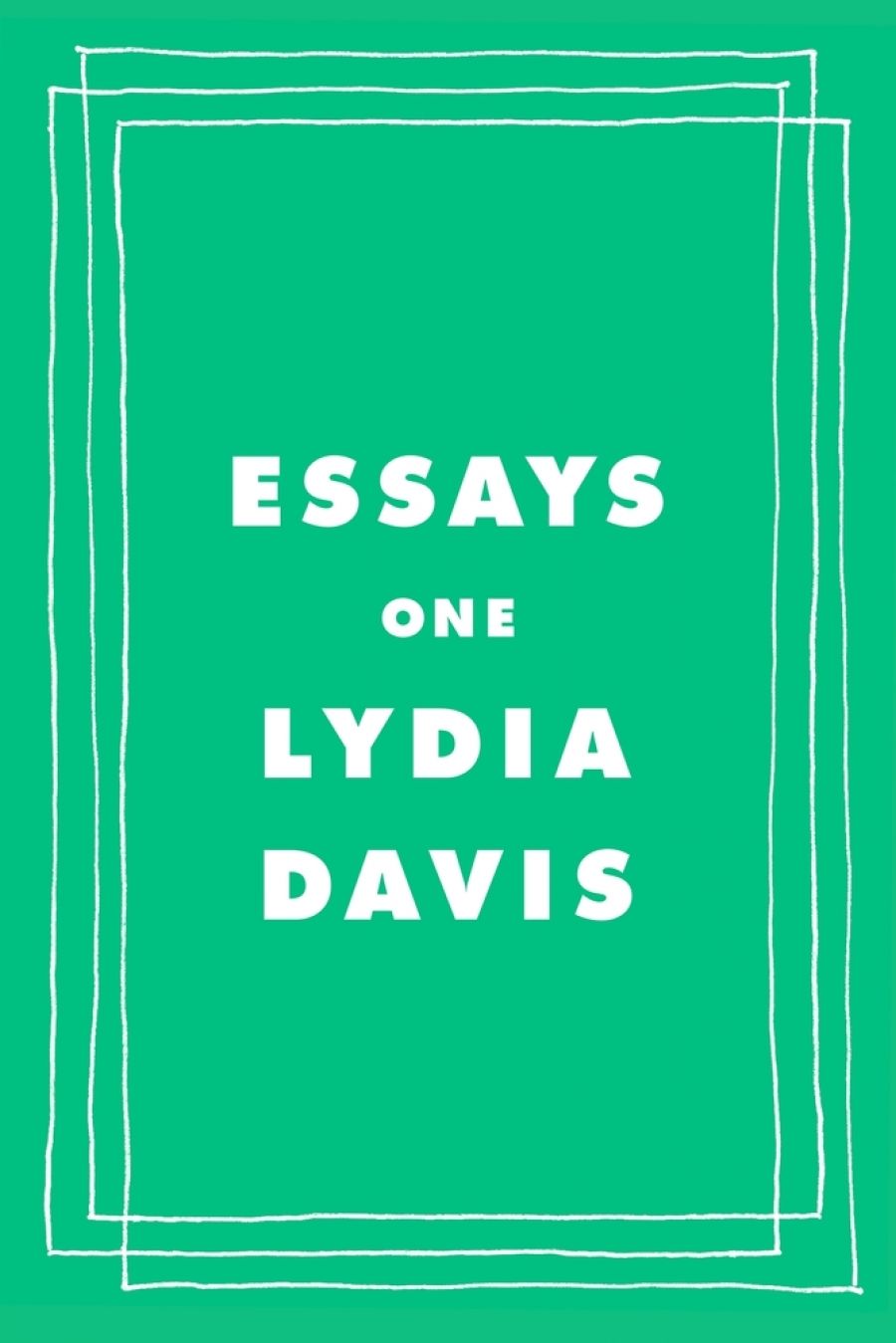
- Free Article: No
- Contents Category: Essay Collection
- Review Article: Yes
- Online Only: No
- Custom Highlight Text:
Essays One is the first of two volumes of collected non-fiction drawn from all periods of Lydia Davis’s long career. While the second collection will, according to the author, ‘concentrate more single-mindedly on translation and the experience of reading foreign languages’, this volume has an alternating focus on writing and reading practices, translation, commentary, reviews, and personal essays. It is loosely structured, non-chronological, and doesn’t shy away from repetition or reiteration – particularly throughout the several pieces that share the subtitle ‘Forms and Influences’.
- Featured Image (400px * 250px):

- Book 1 Title: Essays One
- Book 1 Biblio: Hamish Hamilton, $45 hb, 521 pp
In her essays on other writers, Davis moves deftly between considerations of form, language, and affect. She exhibits a fascination for ‘the beauty of awkward prose’ and repeatedly celebrates the qualities of surprise. She writes admiringly of Lucia Berlin: ‘It’s that we never know quite what is going to come next. Nothing is predictable. And yet everything is also natural, true to life, true to our expectations of psychology and emotion.’ Of the poet Rae Armantrout, she says: ‘Her comedy depends in part on surprise, the unexpected. But then everything in her verse, comic or not, is fresh, surprising, unpredictable. Not only is her humor often a humor of incongruity: incongruity is a recurring characteristic of the poems generally.’ In an essay on writing, she advises: ‘Subtly, or less subtly, you always want to surprise a reader.’
 Lydia Davis (photograph via Five Short Stories)
Lydia Davis (photograph via Five Short Stories)
Davis reveals interesting biographical details along the way: ‘Both my parents had been writers of short stories, and my mother still was,’ she writes. ‘Both of them had had stories in The New Yorker ...’ We discover that her family settled in the United States a long time ago, and that she has a strong interest in the King James Bible. We also learn that several of Davis’s stories draw from found material in emails, and we begin to understand the interest her fiction takes in maids.
Many of the essays have an implicit personal significance. Writing about Berlin’s use of autobiographical material, Davis proclaims: ‘A person could not think he knew her just because he had read her stories.’ The same can presumably be said of Davis, whose stories are occasionally indistinguishable from autobiographical essays or reports.
In one of her essays on writing, Davis asks: ‘How much does a reader have to know beforehand, in order to receive the full impact of a piece of writing, and is it all right for a reader not to receive that full impact?’ This question is particularly relevant to her own fiction. By way of example, ‘Kafka Cooks Dinner’, from Varieties of Disturbance (2007), offers much to readers familiar with Kafka’s writing, but I find it hard to guess what the story provokes for those with only a glancing knowledge of him. From the same collection, ‘Southward Bound, Reads Worstward Ho’ is wildly Beckettian, and the pleasure of reading it owes much to our immediate recognition of its stylistic debt. Is this a problem? Not according to Davis, who argues: ‘Any piece of writing ... has only a particular, and limited, audience or readership. It is not necessary to try to appeal to everyone, or even to explain oneself.’
Essays also features close readings of Davis’s own fiction, including accounts of the process of writing and revising. She gives us a sense of what she strives for and her methods for creative discovery, and offers insights into her relationship with language in serious and mundane ways: ‘I like the word ottoman,’ she writes, ‘which reminds me of the Ottoman Empire and sounds so very elevated for a piece of furniture.’
Some of these pieces are drawn from writing masterclasses she has conducted and for that reason dwell on lengthy explanations or illustrative examples. They address us as wannabe writers in search of practical instruction, which can be jarring. ‘Read closely, and learn to analyze texts,’ she advises, ‘develop your mind and character.’ Some advice almost seems to come from another era: ‘Read the best writers. Maybe it would help to set a goal of one classic per year at least. Classics have stood the test of time, as we say. Keep trying them; if you don’t like them at first, come back to them.’ At other times the instruction is more focused: ‘Do work hard on the very last words – they can sometimes make all the difference as to whether or not a story or poem seems finished.’
There is a kind of Davis story that I struggle to appreciate: longer fictions that employ simple reportage, often separated into small, titled sections. She uses a similar form in some of these essays, to better effect. On the few occasions where she appears to be rolling through the motions, Davis eventually shifts gear, and a dull and unpromising beginning finds its pleasing shape and resolution.
There is much to admire in this collection. ‘In Search of Difficult Edward Dahlberg’ is fascinating and even-handed. A short commentary on Thomas Pynchon’s early stories is surprisingly rich, and essays on Armantrout, Berlin, Flaubert, and Stendhal are superb. Among the more exploratory essays, ‘As I Was Reading’ is a playful delight.


Comments powered by CComment